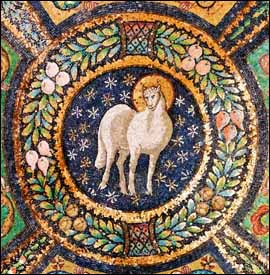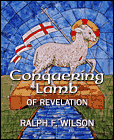Free E-Mail
Bible Studies
Beginning the Journey (for new Christians). en Español
Old Testament
Abraham
Jacob
Moses
Joshua
Gideon
David, Life of
Elijah
Psalms
Solomon
Songs of Ascent (Ps 120-135)
Isaiah
Advent/Messianic Scriptures
Daniel
Rebuild & Renew: Post-Exilic Books
Gospels
Christmas Incarnation
(Mt, Lk)
Sermon on the Mount
(Mt 5-7)
Mark
Luke's
Gospel
John's Gospel
7 Last Words of Christ
Parables
Jesus and the Kingdom
Resurrection
Apostle Peter
Acts
The Early Church
(Acts 1-12)
Apostle Paul
(Acts 12-28)
Paul's Epistles
Christ Powered Life (Rom 5-8)
1 Corinthians
2 Corinthians
Galatians
Ephesians
Vision for Church
(Eph)
Philippians
Colossians,
Philemon
1
& 2 Thessalonians
1 & 2 Timothy,
Titus
General Epistles
Hebrews
James
1 Peter
2 Peter, Jude
1, 2, and 3 John
Revelation
Revelation
Conquering Lamb of Revelation
Topical
Glorious Kingdom, The
Grace
Great Prayers
Holy Spirit, Disciple's Guide
Humility
Lamb of God
Listening for God's Voice
Lord's Supper
Names of God
Names of Jesus
Christian Art
About Us
Podcasts
Contact Us
Dr. Wilson's Books
Donations
Watercolors
Sitemap
Day 2. The Lamb, the Conquering Lion (Revelation 5:5)
 Agnus Dei, San Vitale, Ravenna (begun 532, consecrated 547A.D), mosaic, detail of central ceiling medallion. |
In this heavenly throne room, the One on the throne holds a scroll sealed with seven seals. We'll look at the Lamb who was slain on Day 3, and the scroll on Day 4. But today we'll focus on the description of the Lamb as a Lion.
There is consternation in heaven regarding who is worthy to open the scroll and break its seals. Then one of the twenty-four elders says:
"Weep no more;
behold, the Lion of the tribe of Judah,
the Root of David, has conquered,
so that he can open the scroll and its seven seals.
And I saw a Lamb standing,
as though it had been slain...." (Revelation 5:5-6a)
What a description! What a paradox! The Lion who is a Lamb!
The Lion of the Tribe of Judah (Revelation 5:5a)
Far back into the time of the Patriarchs in Jacob's prophetic blessing over his sons, he refers to the tribe of Judah as a lion (Genesis 49:8-12). A lion was -- and still is -- considered the most dangerous predator in the land. Flocks are attacked and ravaged. Lone individuals in the hills are at risk. Children are in danger if they stray far from home. Where I live in California, joggers on rural trails have been attacked and killed by mountain lions, even near neighborhood homes.
In his novel The Lion, the Witch, and the Wardrobe (1950), C. S. Lewis introduces the lion Aslan as the ruler of the mythical kingdom of Narnia -- a clearly Messianic allusion. In the story, Susan asks Mr. Beaver, "Is he safe?" Mr. Beaver replies, "Safe? Who said anything about safe? 'Course he isn't safe. But he's good. He's the King."
In Israel, the lion is indeed the king of beasts -- the embodiment of strength and kingship, one who is to be feared. And so, according to Genesis 49:8-12, the "lion", a descendant of Judah, will rule over his brothers, over all Israel. Jesus' earthly father Joseph is descended from the tribe of Judah and qualifies him to fulfill this prophecy and to reign over Israel.
The Root of David (Revelation 5:5b)
The elder also calls him "the root of David." This reference is to a Messianic prophecy in Isaiah that promises that a descendant of King David will reign, not just over Israel, but over all the peoples of the world (Isaiah 11:1, 10). Jesus the Lamb is heir to both Joseph's promise of a lion who will rule and Isaiah's promise of the Root of David who will rule the nations.
The Lion Who Conquers (Revelation 5:5c)
Most important in the elder's words is the declaration of victory, of overcoming, of conquering.
"The Lion of the tribe of Judah,
the Root of David,
has conquered...." (Revelation 5:5)
"Conquer" is one of the most important keywords found throughout the Book of Revelation. The verb nikaō, translated variously "overcome" or "conquer," means, "to win in the face of obstacles, be victor, conquer, overcome, prevail."1 Each of the Seven Letters to the Churches in Revelation 2 and 3 concludes with a promise to "the one who conquers."2 Later, John declares that believers conquer the devil by "the blood of the Lamb" and by their testimonies (Revelation 12:11). Ultimately, those who make war on the Lamb will feel his power: "the Lamb will conquer them, for he is Lord of lords and King of kings" (Revelation 17:14, Day 16).
Jesus tells his disciples:
"In the world you will have tribulation.
But take heart; I have overcome the world." (John 16:33)
The disciples don't understand this. They see their Messiah arrested and crucified. But then on the third day he rises from the dead, strikes a death-blow to Satan, and conquers death forever.
Herein lies the paradox: by humbling himself and obeying the Father, Jesus conquers and is exalted.
"[Christ Jesus] emptied himself,
by taking the form of a servant,
being born in the likeness of men.
And being found in human form,
he humbled himself by becoming obedient to the point of death,
even death on a cross.
Therefore God has highly exalted him...." (Philippians 2:7-9a)
Through the cross itself, Christ conquers Satan. Paul puts it this way:
"And having disarmed the powers and
authorities,
he made a public spectacle of them,
triumphing over them by the cross." (Colossians 2:15, NIV)3
Outwardly, the cross looks like the end, a defeat, death. But on the cross, the blood of the Lamb of God is shed for us, atoning for our sins and paying our debt. Satan no longer has any hold over us. Hallelujah.
The Lion who is the Lamb is a lesson for us in humility. A lion is powerful; a lamb is weak. But the Lamb, who humbles himself to Yahweh's will and becomes the ultimate sacrifice for sin, conquers.
 Available in PDF, and Kindle formats, |
There is victory in obedience. When we submit ourselves to God we conquer. When we humble ourselves before him we find his power.
"Humble yourselves, therefore,
under the mighty hand of God
so that at the proper time he may exalt you." (1 Peter 5:6)
In what areas of your life do you need to humble yourself? Where is God calling you to obedience today?
Prayer
Father, most of us would rather be lions than lambs. We would rather exert our own will and do it our way. We want to dominate others, rather than submit. Even submitting to You is hard for us. Teach us to humble ourselves so that you will be able to lift us up without it being an occasion of pride for us. In Jesus' name, we pray. Amen.
Day 2 Meditation (Revelation 5:5). How do humility and
victory go together? How do the Lion and the Lamb fit together? How did Jesus
humble himself? Why is it necessary to humble ourselves before God will exalt
us?
https://www.joyfulheart.com/forums/topic/1876-day-2-lamb-lion/
Endnotes
(References and Abbreviations)
[1] Nikaō, 1. as the intransitive verb), 2. (as a transitive verb), "to overcome someone, vanquish, overcome" (BDAG 673).
[2] Revelation 2:7, 11, 17, 26; 3:5, 12, 21; also 21:7.
[3] "Triumphing" is thriambeuō, "triumph," with the imagery of a triumphal procession celebrating victory (BDAG 459, 4).
[4] "Slain" is sphazō, "slay, slaughter, butcher," especially of an animal for food or in sacrifice, that is, to put to death by violence (Thayer 600).
[5] Unfortunately, some translations translate the adverb hōs, "as" (KJV) with some sense of doubt, "as though it had been slain" (ESV), "as if it had been slain" (NIV, NRSV). It's best to understand the idea as the perspective one should have toward this standing lamb, that of a lamb who has been slain. Hōs, here, is a "marker introducing the perspective from which a person, thing, or activity is viewed or understood as to character, function, or role -- as" (BDAG 1104, 3aα). "The translation 'as though slain' is unnecessary and misleading, as if the Lamb only looked slain but was not; "as slain" is best" (Beale, Revelation, p. 352).
Copyright © 2025, Ralph F. Wilson. <pastor![]() joyfulheart.com> All rights reserved. A single copy of this article is free. Do not put this on a website. See legal, copyright, and reprint information.
joyfulheart.com> All rights reserved. A single copy of this article is free. Do not put this on a website. See legal, copyright, and reprint information.

|

|
In-depth Bible study books
You can purchase one of Dr. Wilson's complete Bible studies in PDF, Kindle, or paperback format -- currently 48 books in the JesusWalk Bible Study Series.
Old Testament- Abraham, Faith of
- Jacob, Life of
- Moses the Reluctant Leader
- Joshua
- Gideon
- David, Life of
- Elijah
- Psalms
- Solomon
- Songs of Ascent (Psalms 120-134)
- Isaiah
- 28 Advent Scriptures (Messianic)
- Daniel
- Rebuild & Renew: Post-Exilic Books
Gospels
- Christmas Incarnation (Mt, Lk)
- Sermon on the Mount (Mt 5-7)
- Luke's Gospel
- John's Gospel
- Seven Last Words of Christ
- Parables
- Jesus and the Kingdom of God
- Resurrection and Easter Faith
- Apostle Peter
Acts
Pauline Epistles
- Romans 5-8 (Christ-Powered Life)
- 1 Corinthians
- 2 Corinthians
- Galatians
- Ephesians
- Philippians
- Colossians, Philemon
- 1 & 2 Thessalonians
- 1 &2 Timothy, Titus
General Epistles
Revelation
Topical
